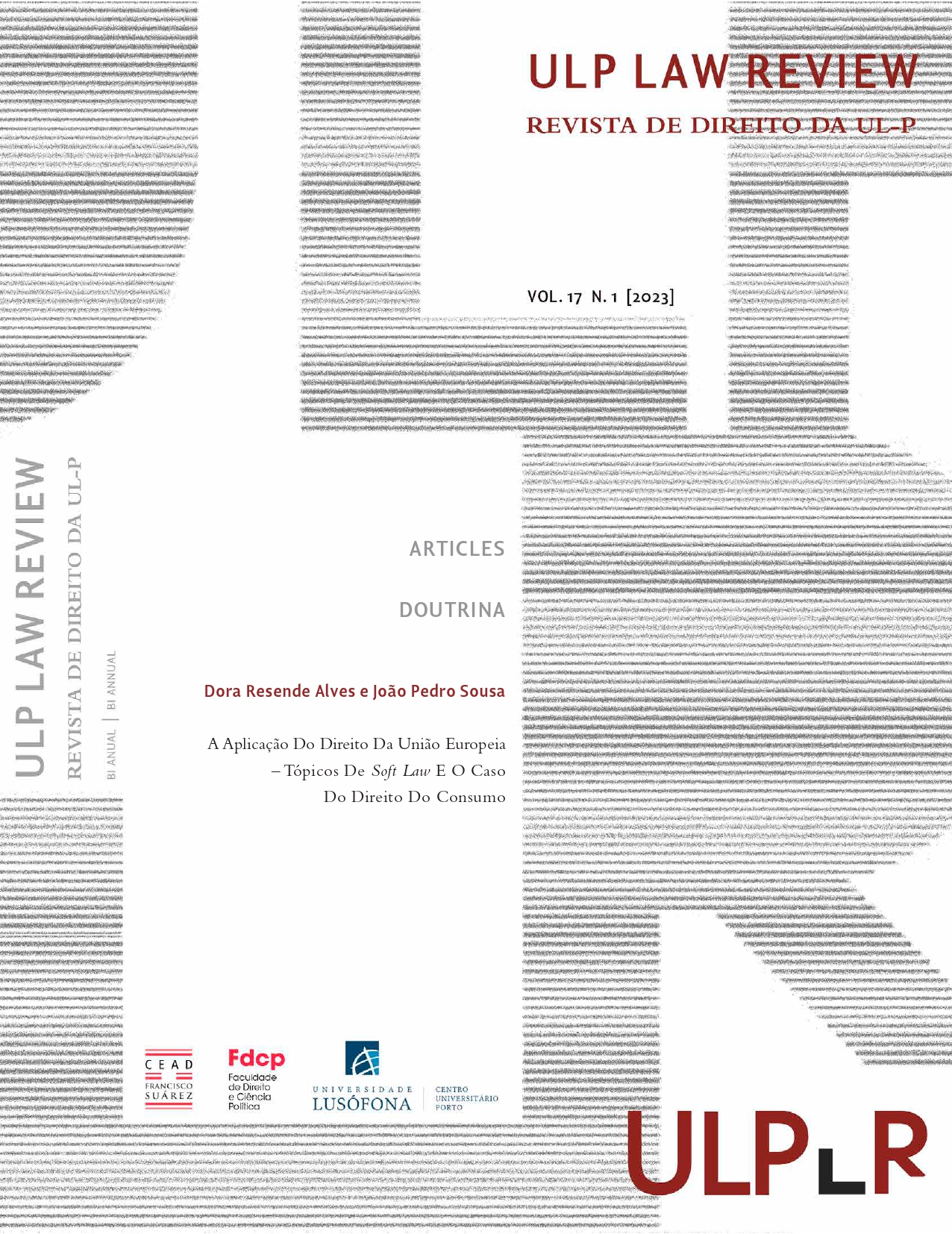The application of European Union Law
soft law issue at Consumer law
Abstract
The integration model followed in the construction of the European Union (EU) comprises the action of its institutions, which develop competences and lines of action through legislative, decision-making and sanctioning paths. All procedures involved result in the preparation of documents.
Consumer protection is enshrined in European Union law, and their rights take on an increasingly present dimension, whether in original law or secondary law, as well as in the so-called “soft law”. The themes of the right to consumption often appear in documents with a non-binding value.
The theme chosen relates to the effectiveness of EU rules as an important aspect for European citizens in their daily lives, in the field of consumer rights. The problem is not always the absence of EU legislation, but effective enforcement is inconsistent, which is particularly true in this field. Applying and enforcing EU law is a challenge that requires an emphasis on delivery in order to serve the general interest.
The objective of this analysis is to demonstrate that there is still a way to go in compliance with the guidelines, whether legally binding or not, of EU law, by the Member States. The aim is to raise awareness of the relationship between consumer law and the application of EU law.
To that end, this study focuses on sources of EU law, through systematic and methodologically selected normative interpretation.
Downloads

Direitos de Autor (c) 2024 - Revista de direito da ULP

This work is licensed under a Creative Commons Attribution-NonCommercial 4.0 International License.






